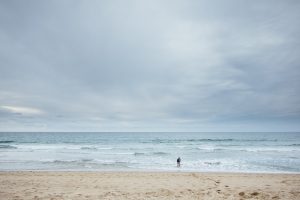Last week the United States launched a new initiative that curiously grouped together a disparate group of countries. The Small and Less Populous Island Economies (SALPIE) Initiative, has been designed to strengthen cooperation with the islands of the Pacific, Caribbean, and North Atlantic. The new grouping sends a signal that the Biden administration is looking to prioritize its maritime partnerships in response to China’s rapidly increasing naval capacity, and maritime ambitions.
On the face of it these three regions seem to have little in common, with the sub-Arctic, advanced economies of Iceland and the Faroe Islands sitting besides the tropical, and mostly developing economies of the Pacific and Caribbean (although the Caribbean does contain some high-income countries as well). Alongside these disparities there are the diverse and distinct cultures between — and within — each region.
Yet island states tend to define themselves by their dominant relationship with the sea, giving them common mental maps within their cultures and in their foreign relations. Pacific Island states especially have sought to make this relationship central to their identity through their “Blue Pacific” framework. “Small island states” have attempted to rebrand themselves as “large ocean states” in recognition of their custodianship of vast swaths of the Pacific Ocean.
Since the United Nations Convention on the Law of the Sea (UNCLOS) came into effect in 1994 — establishing exclusive economic zones (EEZ) and territorial waters — these states have gained important jurisdictional tools to consolidate their cultural attachments to the ocean. It has given these small islands states greater powers to exert both their ocean heritage and their influence over events within their nautical zones.
The Biden administration is looking to enhance its cooperation with island states in order to leverage this influence for its own strategic priorities. But this will mean striking a balance between making small island states not feel as if they are marginalized, while also not overwhelming them through raw power. In order for Washington to maintain its credibility in the Pacific, small island states cannot become casualties in the emerging great power competition between the United States and China.
In recognition of this, the SALPIE Initiative highlights that island states have suffered unique consequences from the COVID-19 pandemic, especially tourism-related economic activity, which has severely affected Iceland, as well as the beach resorts of the Pacific and the Caribbean. Although the White House press release states that the U.S. will prioritize “cooperation with these economies to counter COVID-19 economic challenges,” no details about how this will be achieved have emerged to date.
The second major arm of the initiative is the recognition that small island states are at the forefront of the effects of climate change. These are countries that make negligible contributions to the world’s carbon emissions, but disproportionately feel its effects. Rising sea levels and more volatile weather conditions can stretch their limited resources, and also prove an existential threat to their limited land masses.
Bringing climate change back as a central issue within the White House will be greatly welcomed within the Pacific, and if the issue can be further amplified by the experiences and concerns of other states in the Caribbean and North Atlantic then that is a significant bonus. As keen multilateralists, Pacific Islanders have long been interested in finding common causes, and will welcome a greater understanding of the unique challenges island states face, regardless of their region.
However, one curious aspect of the SALPIE Initiative is that Indian Ocean islands were not included in the grouping. These islands face similar environmental, economic, and strategic challenges as the islands that were included, and would surely be considered natural partners. One potential reason for this exclusion is that the United States is keen to bring India further into its orbit — something India is increasingly open to — and the Indian Ocean is deemed by India to be its rightful strategic zone of influence. Washington may have decided to defer to New Delhi by leaving those particular islands out of its considerations.
This aside, the SALPIE Initiative does consolidate a noticeable shift in tone from the White House that will be welcomed within the Pacific. Whereas former President Donald Trump saw alliances and partnerships as burdens on the U.S. (or himself), President Joe Biden has long understood these partnerships as strategic assets that can be mutually beneficial. There is an obvious self-interest for Washington in its recognition of the maritime and strategic challenges that are being posed by China’s naval ambitions, but if this provides the impetus for Pacific Island states to gain more of Washington’s ear then this will be a positive step.

































